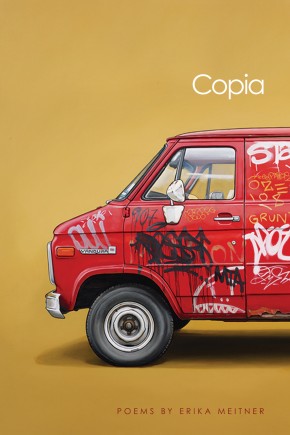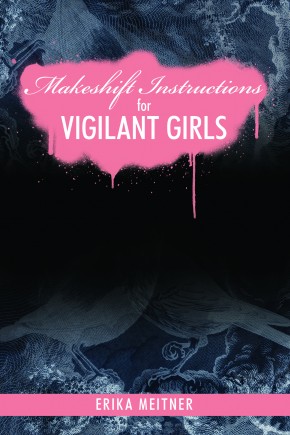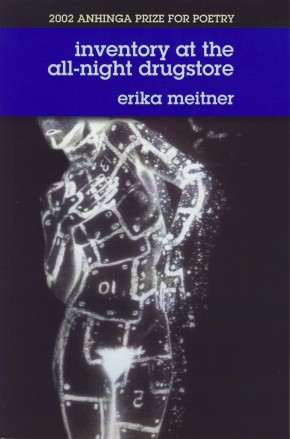

Erika Meitner
Award-winning Poet
Essayist & Social Critic
National Jewish Book Award
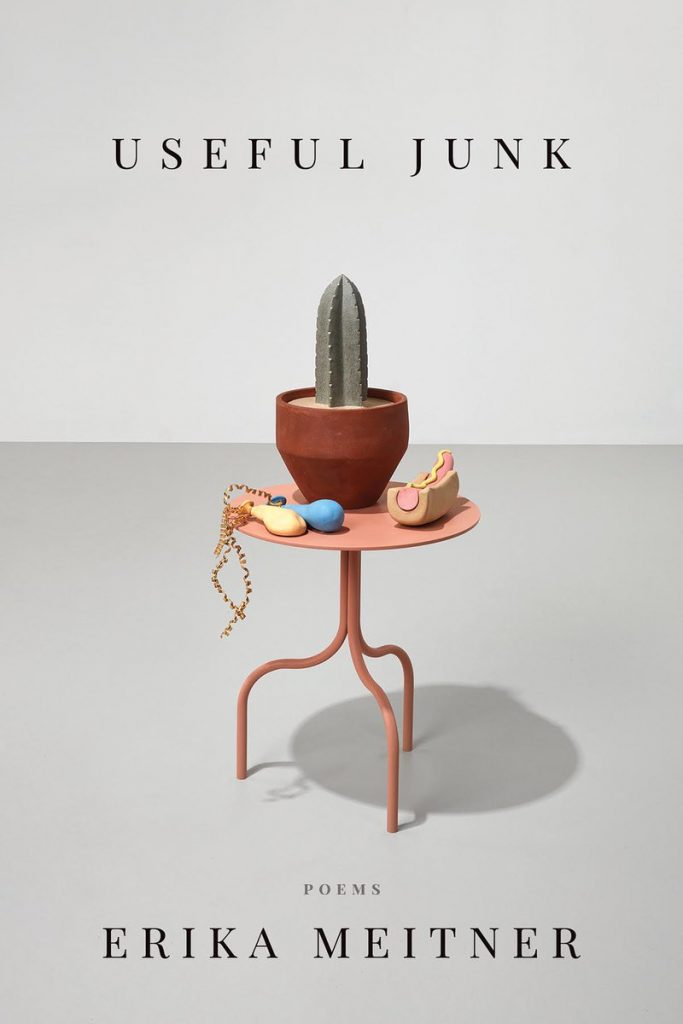
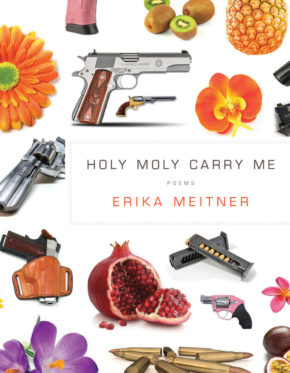
Readings &
Lecture Topics
- The Poet As Parent
- Artistic Creativity & Yiddishkayt
- Third Generation: Family History & Holocaust Connections
- Poetry Taboos and You: How and Why to Break the Rules
- An Evening with Erika Meitner
Biography
“Erika Meitner is the quintessential 21st century storyteller bearing witness from the vantage point of a social critic with heart, humor, and an incomparable voice.” ―Carmen Giménez Smith
“Erika Meitner is known for what’s called ‘documentary poetry,’ which combines some of the journalistic work of the reporter with the subjective renderings of the poet.” —NPR Books
“Erika Meitner…taps into national conversations on topics including motherhood, infertility, terrorism, Judaism, school shootings, the 2016 election, and race. The poems feel straightforward in a way that adds to their urgency. ” —Jewish Book Council
Poet and writer Erika Meitner is the author of six books of poems and winner of the 2018 National Jewish Book Award for Poetry. Born and raised in New York, Meitner is a first-generation American, the daughter of a refugee and an immigrant, and “3G”—the granddaughter of Holocaust survivors. In a conversation with Rachel Zucker in Commonplace, Meitner explains that much of her work arose from a commitment to writing accurately and respectfully about the small Appalachian town in which she lived for 15 years, and the challenges of writing as an engaged member of her community while being an othered outsider, a poet, a Jew, and the white mother of a Black son.
Meitner’s sixth book of poems, Useful Junk (BOA Editions), explores memory, passion, and the various ways the body sees and is seen. The poems speak to the reader from parking lots, planes, dreamscapes, and the digital arena to affirm that we are made of every intimate moment we have ever had. Letter poems to a younger poet interspersed throughout the collection question desire itself and consider how digital technologies—sexting, Uber, selfies, Instagram—are reframing self-image and shifting the ratios of risk and reward in erotic encounters.
Her first book, Inventory at the All-Night Drugstore (Anhinga Press, 2003), won the Robert Dana-Anhinga Prize for Poetry. Meitner’s second book, Ideal Cities (HarperCollins, 2010), was selected as a winner of the 2009 National Poetry Series competition. Her third collection, Makeshift Instructions for Vigilant Girls (Anhinga Press, 2011) is “a sexy, funny, smart book full of crack-the-whip language,’’ in the words of Beth Ann Fennelly. Meitner’s fourth collection of poems, Copia (2014), was published as part of BOA Editions’ American Poets Continuum Series. Holy Moly Carry Me (BOA Editions, 2018), her fifth collection, won the 2018 National Jewish Book Award in Poetry and was a finalist for the Library of Virginia Award and the National Book Critics Circle Award in poetry. Her sixth collection, Useful Junk, was a finalist for the Wisconsin Library Association Literary Award in poetry. Her newest and seventh collection, Assembled Audience, is forthcoming from Milkweed Editions in 2026.
Meitner’s poems have been anthologized widely, and have appeared in publications including The New Yorker, Virginia Quarterly Review, The New York Times Magazine, The New Republic, Poetry, Orion, Ploughshares, Oxford American, The Believer, and elsewhere. She also creates larger-scale documentary photo/text projects on urban environments, with photographers. These include “This is Not a Requiem for Detroit” and “RNC CLE” for Virginia Quarterly Review with Ryan Spencer Reed, and an ongoing project on Miami and sea-level rise with Anna Maria Barry-Jester, part of which was featured as the cover story in the Summer 2021 issue of VQR (“Reimagining Magic City“).
Her honors include fellowships and residencies from MacDowell, Loghaven Artist Residency, the Virginia Center for the Creative Arts, the Hermitage Artist Retreat, T.S. Eliot House, Blue Mountain Center, Bethany Arts Community, the Wisconsin Institute for Creative Writing, and Marble House Project. Meitner was the 2015 US-UK Fulbright Distinguished Scholar in Creative Writing at the Seamus Heaney Centre for Poetry at Queen’s University Belfast, a 2022 Virginia Commission for the Arts Fellow, and is currently a Mandel Institute Cultural Leadership Program Fellow (2023-2025).
Meitner attended Dartmouth College and the University of Virginia, where she received her MFA in Creative Writing as a Henry Hoyns Fellow, and her MA in Religious Studies as a Morgenstern Fellow in Jewish Studies.
As part of her commitment to student mentorship, she is also the creator and steward of the Post-MFA Resources Tumblr. Meitner is currently an English professor at the University of Wisconsin-Madison, where she also directs the Conney Project, and the MFA program in Creative Writing.
Short Bio
Erika Meitner is the author of six books of poems, including Ideal Cities (Harper Perennial, 2010)—a 2009 National Poetry Series winner; Copia (BOA Editions, 2014); Holy Moly Carry Me (BOA Editions, 2018), winner of the 2018 National Jewish Book Award and a finalist for the National Book Critics Circle Award in poetry; and Useful Junk (BOA Editions, 2022). Her poems have been published most recently in The New Yorker, Orion, The New Republic, Virginia Quarterly Review, Oxford American, Poetry, and elsewhere. Meitner is currently a professor of English at the University of Wisconsin-Madison, where she also directs the MFA program in Creative Writing and the Conney Project on Jewish Arts. Her newest book of poems, Assembled Audience, is forthcoming from Milkweed Editions in 2026.
Visit Author WebsiteVideos
Publications
Useful Junk
2022
A master of documentary poetry, Erika Meitner takes up the question of desire and intimacy in her latest collection of poems.
In her newest collection Useful Junk, Meitner explores memory, passion, and the various ways the body sees and is seen. These poems speak to us from parking lots, planes, dreamscapes, and the digital arena to affirm that we are made of every intimate moment we have ever had. Letter poems to a younger poet interspersed throughout the collection question desire itself and consider how digital technologies—sexting, Uber, selfies, Instagram—are reframing self-image and shifting the ratios of risk and reward in erotic encounters.
With dauntless vulnerability, Meitner taps into the metaphysical, the ekphrastic, the sensual, and the ordinary moments of life, remaining porous and open to the world, and always returning to the desires rooted deep within the self as a way forward in a damaged world. Boldly asserting that pleasure is a vital form of knowledge, Useful Junk reminds us that our selves are made real and beautiful by our embodied experiences, and that our desire is what keeps us alive.
Holy Moly Carry Me
2018
“In the stunning, exact, and haunting book Holy Moly Carry Me, Meitner’s strong signature voice is on full display, but with a complex empathy for the violent, messed-up world. These are powerful poems that wonder, ache, fear, question, delve into history, and somehow never stop praising the human capacity for survival.” —Ada Limón
Erika Meitner’s fifth collection of poetry plumbs human resilience and grit in the face of disaster, loss, and uncertainty. These narrative poems take readers into the heart of southern Appalachia—its highways and strip malls and gun culture, its fragility and danger—as the speaker wrestles with what it means to be the only Jewish family in an Evangelical neighborhood and the anxieties of raising one white son and one black son amidst racial tensions and school lockdown drills. With a firm hand on the pulse of uncertainty at the heart of 21st century America and a refusal to settle for easy answers, Meitner’s poems embrace life in an increasingly fractured society and never stop asking what it means to love our neighbor as ourselves.
Copia
2014
Erika Meitner’s fourth collection grapples with the widespread implications of commercialism and overconsumption, particularly in exurban America. Documentary poems examine the now-bankrupt city of Detroit, once the thriving heart of the American Dream. Probing the human desires for love, sex, objects, and home, Copia exposes a vacuous world of decay and abandonment, while holding out hope for re-birth from the ashes.
Because it is an uninhabited place, because it
makes me hollow, I pried open the pages of
Detroit: the houses blanked out, factories
absorbed back into ghetto palms and scrub-
oak, piles of tires, heaps of cement block.
Vines knock and enter through shattered
drop-ceilings, glassless windows. Ragwort
cracks the street’s asphalt to unsolvable
puzzles.
Makeshift Instructions for Vigilant Girls
2011
“These cool, hot poems about women and girls in danger and on the prowl, coming of age and being of age, are full ofstartling detail and vivid setting. Meitner’s range, wit, compassion and her alertness to the moments where domestic and collective experience intersect, make these poems memorable. This book is a seriously good read.” —Daisy Fried
Ideal Cities
2010
“Erika Meitner is the new voice of intelligent and emotional poems. Good for poetry. Good for poetry lovers. Good for the rest of us, too.” — Nikki Giovanni
Exploring themes of pregnancy, motherhood, ancestry, and life in the borderline slums of Washington, DC, the richly felt and adroit poetry of Erika Meitner’s Ideal Cities moves, mesmerizes, and delights. The work of an important emerging voice in contemporary American poetry—a winner of the 2009 National Poetry Series Prize as selected by Paul Guest. Denise Duhamel writes, “The poems in Erika Meitner’s Ideal Cities are road maps, blueprints, dollhouses, dioramas…..Meitner’s poetry isn’t afraid of history and personal histories. Her voice is smart, sassy, and savvy. Her ideal poems are built with mortar and quirkily astounding metaphors.”
Inventory at the All-Night Drugstore
2003
“In Erika Meitner’s Inventory at the All-Night Drugstore, we enter worlds marvelously realized, our intrepid narrator an unerring guide. Whether we navigate the initiatory mysteries and indignities of adolescent urgencies, the perils and pleasures of the adult sexual quest, or the vital chaos of teaching in a Brooklyn public school, we are in the care of a poet who cares: feisty, funny, and ever alert to the telling details of a life lived in the rush and anguish of the post-modern world. These are poems like the tattoos she hymns and ponders—they mark our being with their delicate, indelible patterns, their swoops and utterances and wild surmises.”- Gregory Orr
Articles & Audio
Read What’s In Print
• A Conversation with Alicia Ostriker and Erika Meitner — Los Angeles Review of Books
• 31 Books in 30 Days: Anjali Enjeti on Erika Meitner’s Holy Moly Carry Me — LitHub
• Review of Holy Moly Carry Me — Jewish Book Council
• A Jewish Reading of Holy Moly Carry Me — The Bind
• Interview with Erika Meitner — Ploughshares
• Review of Copia — The Rumpus
Listen to Audio
• Erika Meitner Reads Ghost Eden — Academy of American Poets
• Erika Meitner Reads You Are Invisible — Indiana Public Media
Selected Writings
• Read the photo essay: “This is Not a Requiem for Detroit” – VCR
• Read the essay “RNC CLE: Cleveland Up Close During the Republican National Convention – VCR
• Read article on Being Jewish in Rural Virginia (after the Pittsburg Synagogue shooting) — CNN
• “On Rita Dove” – Anthology Women Poets on Mentorship: Efforts and Affections
• Read the poem “Dollar General” – Oxford American
I’ll Remember You As You Were, Not As What You’ll Become
If you are fearful, America,
I can tell you I am too. I worry
about my body—the way, lately,
it marches itself over curbs and
barriers, lingers in the streets
as a form of resistance.
The streets belong to no one
and everyone and are a guide
for motion, but we are so numerous
there is no pavement left on which to
release our bodies, like a river spilling
over a dam, so instead my body
thrums next to yours in place.
When we stop traffic or hold
hands to form a human chain,
we become a neon OPEN sign
singing into the night miles from
home when the only home left
is memory, your body, my body,
our scars, the dark punctuated
with the dying light of stars.
*note: the title comes from the work of video artist Sky Hopinka
GHOST EDEN
after Anthony Haughey’s “Settlement”
Garden of rock.
Garden of brick and heather.
Garden of cranes with their hands raised
as if they know the yellow answer:
to gather together—safety in numbers.
Garden of drywall frames, holes for windows
punched out like teeth. Garden of bar fights.
Garden of rubble and gaps,
spectral for-sale signs knocked
from wooden posts, bleached down
to numbers ending in gardens of overgrown lots.
We are falling into ruin, garden
of scaffolding and shale and gravel—
give us back our peace: a half-built garden
of theft, treasures hidden in darkness,
newspapers crumpled on subfloors telling us
to hold fast to that which is good.
Garden of rebar and saplings with trunks
encased in corrugated piping
because many animals can girdle
a tree’s bark quickly: deer, stray cats, rabbits.
Garden of Tyvek wrap loosed
and flapping like a ship’s sail
in the gales, in the sheeting storms.
Hanging laundry left out in the garden
past darkness, fruit from the tree
of human-ness: socks, shirts, underpants.
Garden of long exposures, half-light, traces
that empty themselves in tire treads running
like ladders through red clay mud:
the dirt from which we are formed
and crushed and formed again.

